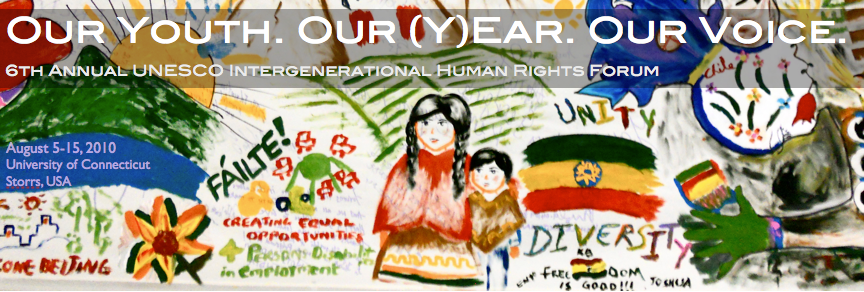 |
| "Don´t look at the MDGs as planning targets, rather as inspirational goal |
After sharing lots of useful links and documents on the topic, Shyamala directed her lecture towards the interdependence and interconnection between all MDGs. To quote Stephen Hawking, "the science of the 21st century is complexity," and we need to see MDGs as an interdependent system of guiding indicators with which to navigate.
 MDGs are helping governments to implement human rights and hold each other accountable. “Each one of us has to become the agent of change and influence people around us, politicians, scholars, business men, the media," she said.
MDGs are helping governments to implement human rights and hold each other accountable. “Each one of us has to become the agent of change and influence people around us, politicians, scholars, business men, the media," she said.Shyamala mentioned three qualities we need to have as human rights activists in the contemporary world:
1) GLOBAL AWARENESS: “Know what´s going on outside of your village!”
2) GLOBAL PERSPECTIVE: “Always bare in mind the impact of things, how what happens in one country, affects other places and many times your own country”.
3) GLOBAL CRITIAL LITERACY: “Dig deep into facts and info you hear; think of the underlying aspects of events, reports, news. Learn about country backgrounds. Make critical reflections”.
From a personal perspective, we could ask ourselves a few simple and poignant questions: How am I linked to others? How do my actions influence others? What can I do when I figure this out?
 She also suggested three resources for us to consider in order to advance on those qualities: virtual activism, linking local and global, and deepening our social justice perspective, for which she particularly recommended reading Amartya Sen´s “The Idea of Justice”.
She also suggested three resources for us to consider in order to advance on those qualities: virtual activism, linking local and global, and deepening our social justice perspective, for which she particularly recommended reading Amartya Sen´s “The Idea of Justice”. As a final exercise, Prof. Raman shared these two questions with the group so each of us could shortly respond among ourselves:
i. “How do you as youth leaders see your role, between now and 2015 in regard of MDGs?”
ii. “How do you envisage building a post-MDGs consciousness?”
Links and documents shared by her can be found here.

No comments:
Post a Comment